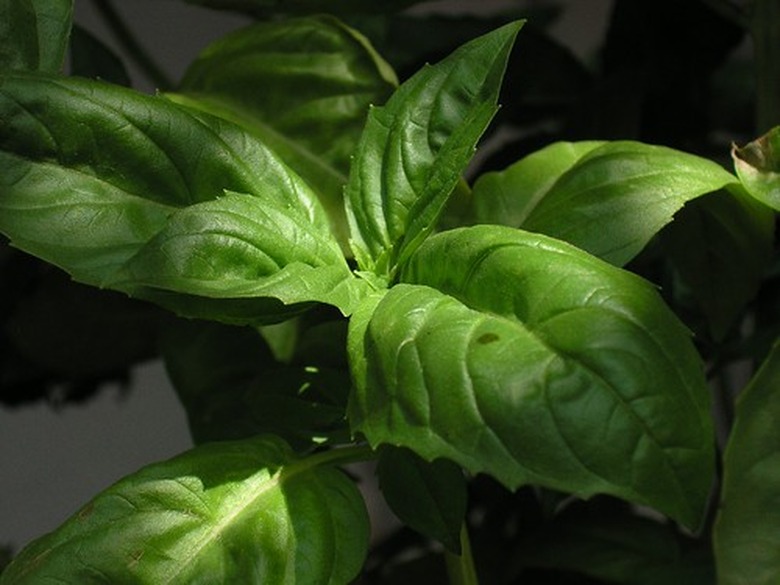The Best Soil For Indoor Basil Plants
Basil is a warm weather plant the can be successfully grown indoors under the right conditions. It is a tender annual, and its leaves can be picked as needed for cooking.
Soil for Mature Plants
Unlike most herbs, basil prefers a nutrient-rich, slightly acidic soil that is well drained. A light potting mix that contains a high percentage of organic matter is best. The soil should hold moisture but never be soggy. If you plan to purchase potting soil, choose a mix formulated for foliage plants as opposed to one formulated for flower production. Flower production of basil plants should be discouraged.
- Basil is a warm weather plant the can be successfully grown indoors under the right conditions.
- A light potting mix that contains a high percentage of organic matter is best.
Custom Soil Mix
A customized soil mix can be created by mixing one third potting soil with one third organic matter (peat moss, compost or leaf mold) and one third vermiculite or perlite for drainage. Basil prefers a pH between 6.0 and 6.5. The addition of organic matter will maintain the pH in this range.
Seed Mix
The soil mix used to start basil plants from seed is a bit different than for mature plants. To help prevent damping off, use a non-soil mix of 50 percent peat moss and 50 percent vermiculite. Moisten the mix slightly. When tightly squeezed in your hand, the mix should ball up, but break apart when touched. When squeezed, the mix should not drip. Spread the seeds on the surface and cover them lightly with the seed mix. Do not let the seed mix dry out. Water the mix with a spray bottle so as not to disturb the seeds. When four true leaves develop, transplant the seedlings to their permanent container.
- A customized soil mix can be created by mixing one third potting soil with one third organic matter (peat moss, compost or leaf mold) and one third vermiculite or perlite for drainage.
Fertilizer
Basil needs very little fertilizer. A balanced organic fertilizer formulated for nonflowering houseplants is best. Fertilizer that encourages flower production should be avoided.
Soil Temperature
Basil is a heat-loving plant. It does best with a soil temperature of 70 degrees. Place it in a warm, sunny location to help maintain the proper soil temperature. This will also help ward off fungus infections.
- Basil needs very little fertilizer.
- A balanced organic fertilizer formulated for nonflowering houseplants is best.
